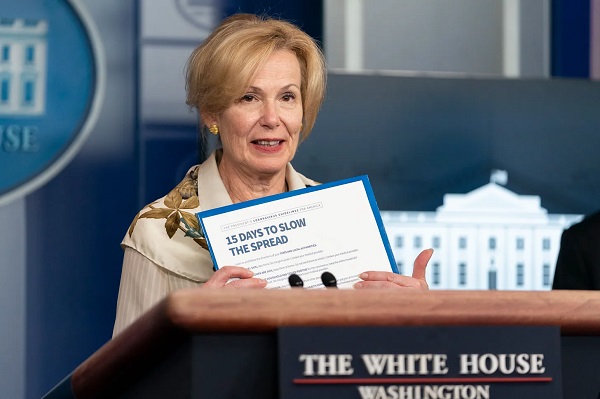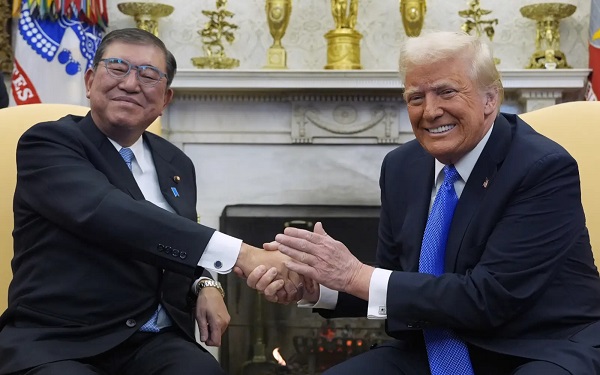Business
Todayville At The Home Show With Canadian Closet
Business
Worst kept secret—red tape strangling Canada’s economy

From the Fraser Institute
By Matthew Lau
In the past nine years, business investment in Canada has fallen while increasing more than 30 per cent in the U.S. on a real per-person basis. Workers in Canada now receive barely half as much new capital per worker than in the U.S.
According to a new Statistics Canada report, government regulation has grown over the years and it’s hurting Canada’s economy. The report, which uses a regulatory burden measure devised by KPMG and Transport Canada, shows government regulatory requirements increased 2.1 per cent annually from 2006 to 2021, with the effect of reducing the business sector’s GDP, employment, labour productivity and investment.
Specifically, the growth in regulation over these years cut business-sector investment by an estimated nine per cent and “reduced business start-ups and business dynamism,” cut GDP in the business sector by 1.7 percentage points, cut employment growth by 1.3 percentage points, and labour productivity by 0.4 percentage points.
While the report only covered regulatory growth through 2021, in the past four years an avalanche of new regulations has made the already existing problem of overregulation worse.
The Trudeau government in particular has intensified its regulatory assault on the extraction sector with a greenhouse gas emissions cap, new fuel regulations and new methane emissions regulations. In the last few years, federal diktats and expansions of bureaucratic control have swept the auto industry, child care, supermarkets and many other sectors.
Again, the negative results are evident. Over the past nine years, Canada’s cumulative real growth in per-person GDP (an indicator of incomes and living standards) has been a paltry 1.7 per cent and trending downward, compared to 18.6 per cent and trending upward in the United States. Put differently, if the Canadian economy had tracked with the U.S. economy over the past nine years, average incomes in Canada would be much higher today.
Also in the past nine years, business investment in Canada has fallen while increasing more than 30 per cent in the U.S. on a real per-person basis. Workers in Canada now receive barely half as much new capital per worker than in the U.S., and only about two-thirds as much new capital (on average) as workers in other developed countries.
Consequently, Canada is mired in an economic growth crisis—a fact that even the Trudeau government does not deny. “We have more work to do,” said Anita Anand, then-president of the Treasury Board, last August, “to examine the causes of low productivity levels.” The Statistics Canada report, if nothing else, confirms what economists and the business community already knew—the regulatory burden is much of the problem.
Of course, regulation is not the only factor hurting Canada’s economy. Higher federal carbon taxes, higher payroll taxes and higher top marginal income tax rates are also weakening Canada’s productivity, GDP, business investment and entrepreneurship.
Finally, while the Statistics Canada report shows significant economic costs of regulation, the authors note that their estimate of the effect of regulatory accumulation on GDP is “much smaller” than the effect estimated in an American study published several years ago in the Review of Economic Dynamics. In other words, the negative effects of regulation in Canada may be even higher than StatsCan suggests.
Whether Statistics Canada has underestimated the economic costs of regulation or not, one thing is clear: reducing regulation and reversing the policy course of recent years would help get Canada out of its current economic rut. The country is effectively in a recession even if, as a result of rapid population growth fuelled by record levels of immigration, the GDP statistics do not meet the technical definition of a recession.
With dismal GDP and business investment numbers, a turnaround—both in policy and outcomes—can’t come quickly enough for Canadians.
Business
‘Out and out fraud’: DOGE questions $2 billion Biden grant to left-wing ‘green energy’ nonprofit`
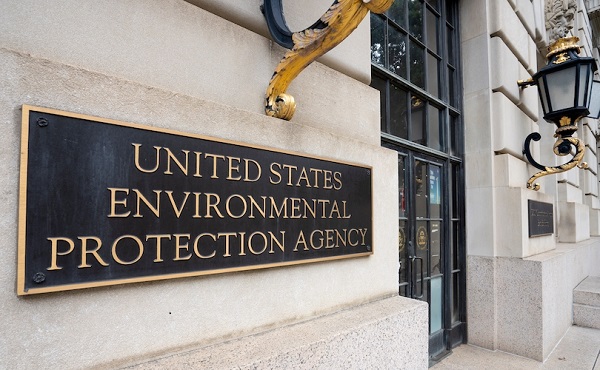
From LifeSiteNews
The EPA under the Biden administration awarded $2 billion to a ‘green energy’ group that appears to have been little more than a means to enrich left-wing activists.
The U.S. Environmental Protection Agency (EPA) under the Biden administration awarded $2 billion to a “green energy” nonprofit that appears to have been little more than a means to enrich left-wing activists such as former Democratic candidate Stacey Abrams.
Founded in 2023 as a coalition of nonprofits, corporations, unions, municipalities, and other groups, Power Forward Communities (PFC) bills itself as “the first national program to finance home energy efficiency upgrades at scale, saving Americans thousands of dollars on their utility bills every year.” It says it “will help homeowners, developers, and renters swap outdated, inefficient appliances with more efficient and modernized options, saving money for years ahead and ensuring our kids can grow up with cleaner, pollutant-free air.”
The organization’s website boasts more than 300 member organizations across 46 states but does not detail actual activities. It does have job postings for three open positions and a form for people to sign up for more information.
The Washington Free Beacon reported that the Trump administration’s Department of Government Efficiency (DOGE) project, along with new EPA administrator Lee Zeldin, are raising questions about the $2 billion grant PFC received from the Biden EPA’s National Clean Investment Fund (NCIF), ostensibly for the “affordable decarbonization of homes and apartments throughout the country, with a particular focus on low-income and disadvantaged communities.”
PFC’s announcement of the grant is the organization’s only press release to date and is alarming given that the organization had somehow reported only $100 in revenue at the end of 2023.
“I made a commitment to members of Congress and to the American people to be a good steward of tax dollars and I’ve wasted no time in keeping my word,” Zeldin said. “When we learned about the Biden administration’s scheme to quickly park $20 billion outside the agency, we suspected that some organizations were created out of thin air just to take advantage of this.” Zeldin previously announced the Biden EPA had deposited the $20 billion in a Citibank account, apparently to make it harder for the next administration to retrieve and review it.
“As we continue to learn more about where some of this money went, it is even more apparent how far-reaching and widely accepted this waste and abuse has been,” he added. “It’s extremely concerning that an organization that reported just $100 in revenue in 2023 was chosen to receive $2 billion. That’s 20 million times the organization’s reported revenue.”
Daniel Turner, executive director of energy advocacy group Power the Future, told the Beacon that in his opinion “for an organization that has no experience in this, that was literally just established, and had $100 in the bank to receive a $2 billion grant — it doesn’t just fly in the face of common sense, it’s out and out fraud.”
Prominent among PFC’s insiders is Abrams, the former Georgia House minority leader best known for persistent false claims about having the state’s gubernatorial election stolen from her in 2018. Abrams founded two of PFC’s partner organizations (Southern Economic Advancement Project and Fair Count) and serves as lead counsel for a third group (Rewiring America) in the coalition. A longtime advocate of left-wing environmental policies, Abrams is also a member of the national advisory board for advocacy group Climate Power.
DOGE is currently conducting a thorough review of federal executive-branch spending for the Trump administration, efforts that left-wing activists are challenging in court. The official DOGE website currently claims credit for a total estimated savings of $55 billion.
-
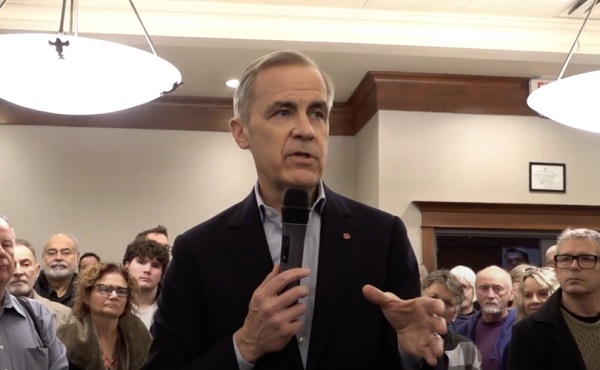
 Carbon Tax2 days ago
Carbon Tax2 days agoMark Carney has history of supporting CBDCs, endorsed Freedom Convoy crackdown
-
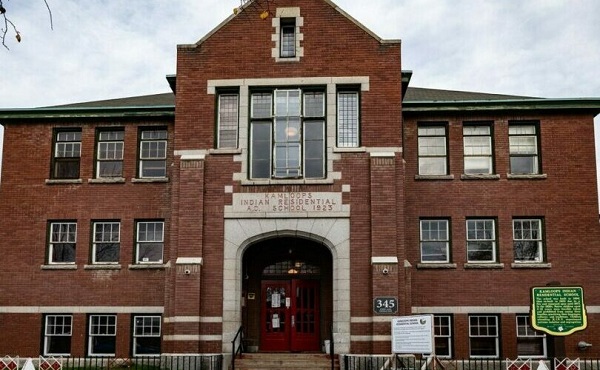
 Indigenous14 hours ago
Indigenous14 hours agoTrudeau gov’t to halt funds for ‘unmarked graves’ search after millions spent, no bodies found
-
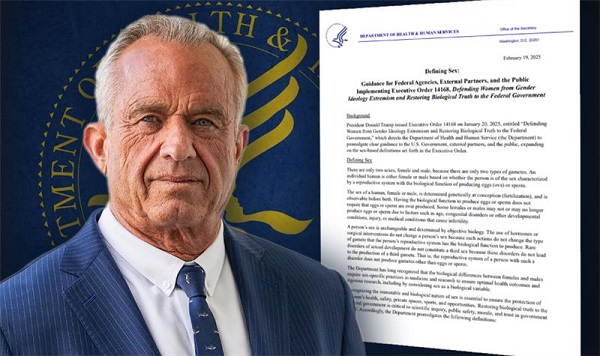
 Health2 days ago
Health2 days agoTrump HHS officially declares only two sexes: ‘Back to science and common sense’
-

 Censorship Industrial Complex2 days ago
Censorship Industrial Complex2 days agoBipartisan US Coalition Finally Tells Europe, and the FBI, to Shove It
-
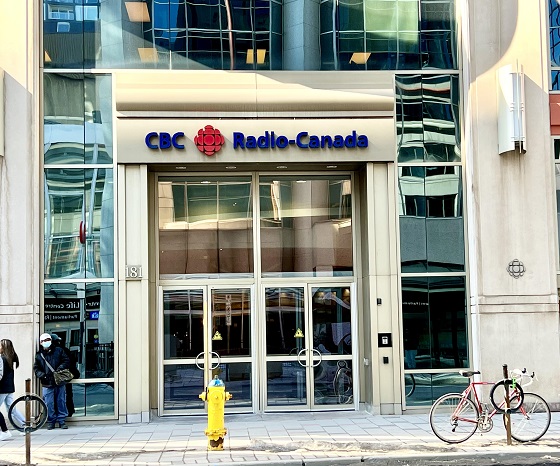
 Business1 day ago
Business1 day agoFederal Heritage Minister recommends nearly doubling CBC funding and reducing accountability
-
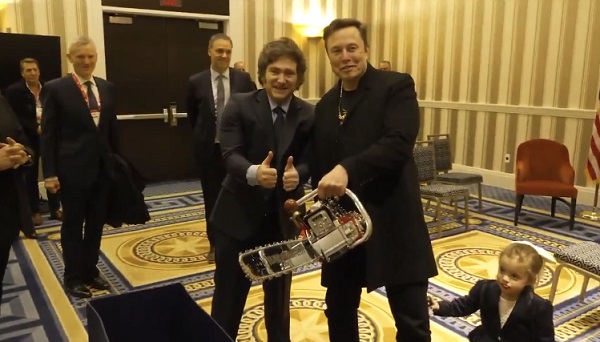
 Business1 day ago
Business1 day agoArgentina’s Javier Milei gives Elon Musk chainsaw
-

 International2 days ago
International2 days agoSenate votes to confirm Kash Patel as Trump’s FBI director
-

 Business2 days ago
Business2 days agoGovernment debt burden increasing across Canada




